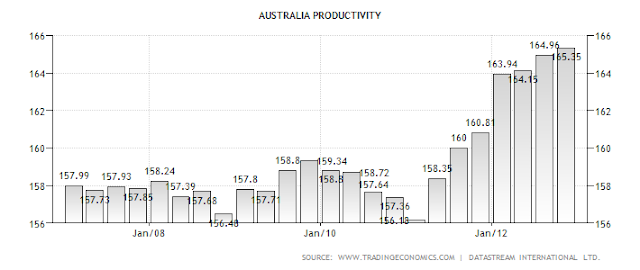In post-federal-election Australia, we are about as far from marriage equality as we've been in the last generation. Indeed, by the election of a conservative "Opus Dei" Catholic to the top job, and the parallel implosion of the Labour left, we have probably taken a big step backwards.
I am heterosexual, and I am committed to equality on the basis of sexual orientation. As part of that commitment to political activism, I write a regular column for Blaze, a local magazine, part of the Gay News Network, exploring the theological dimensions of LGBTi issues.
Since many of you, dear readers, won't be able to get your hands on a hard-copy, I've decided to post the most recent articles here as well.
Enjoy.
***
History is made by
those who show up (July 2013 issue)
“Just ignore those
bigots,” they said.
And of course, they were--and are—right about this. The
rational part of me sees this clearly. Nevertheless, I still bristled at their
bilious hate-speech and poor scriptural scholarship on their surprisingly
well-made and huge placards. And eventually, I allowed myself to be baited into
a confrontation with them that a calm, friendly cop had to step in and defuse.
I am not so much ashamed of what I did, but how I comported myself.
Violence—even in the form of intemperate speech--begets violence… (something
you’d think a minister would know).
Why the bristling and the intemperate speech? Because I was
the only actual clergy present at
last month’s marriage equality rally. I was there to support the cause, as the Unitarian church, my denomination, has
always done in the USA and the UK and New Zealand. My appallingly un-aesthetic,
homemade placard read “Unitarians Support Marriage Equality”—along with a
picture of our flaming chalice symbol. I might just as well have not been there
at all.
The problem was (and is) that all the general public
(through the ever-balanced mainstream media) see of religious representation at
such demonstrations are people like the self-appointed Street Preachers. And so
the message is: “If you’re in any way religious, you’re anti-LGBT rights.” And
this simplification is just damn well not true.
 |
| Lies, damned lies, and people who use the parts a big book to confirm their prejudices... |
Our theology says it’s simply not okay to cherry-pick an
encyclopaedic ancient book from another culture, make up stuff from what you’ve
picked, and use it to harass and oppress people. Especially when the
over-arching theme of that book is: “Learn to love all beings.”
Unitarian theology prizes the use of reason, confident that
humans wouldn’t be given that capacity to ‘fust in us un-used’. So the rational
argument for marriage equality goes like this: “People do not choose their
sexual orientation (this is well-establish science). Justice requires equal
treatment before the law for all citizens. Denying equal legal rights on the
basis of something over which one has no control (like skin colour) is
discriminatory. Therefore this law needs to be changed.”
Progressive religion is NOT the enemy of LGBT rights, and I
know clergy who agree. Where were they? The recent SCOTUS decision to
overturn Prop 8 in the USA indicates that marriage equality is now the
‘low-hanging fruit’ (pardon) of social justice issues, easier to endorse now
that it has ever been. If progressive clergy want to show that religion can be
a relevant and effective force in positive social change, THIS is the issue to
help move to its logical and inevitable conclusion.
But on the day, the voice of religion defaulted to the usual
shrill bigotry. And that is what is called a wasted opportunity to help incarnate divine love in the world.
Be yourself to death (August 2013 issue)
Few people appreciate this, but there is a crucial
theological imperative to being ‘out and proud’, whether or not you happen to
believe in a personal God.
Absolutely everything in the universe has its own unique and
inherent nature, a one-off mix of limits, potentials, and physical properties. In
human beings, sexuality is one rather basic expression of one’s nature. A
humanist would call this nature one’s ‘identity’ or ‘integrity’; a theist might
refer to this as ‘the imagine and LIKEness of God’. Ask any parent, and they will tell you that
no child comes into the world a ‘blank slate’, as raw material to be shaped entirely
by social forces. There is a unique selfhood to each and every one of us.
Thus, we are called (by Nature, by God, of whatever you will…)
to live out this authentic selfhood.
As many of you, dear readers, will attest, the psychological costs of NOT doing
so can be profoundly crippling, and warp not only yourself, but your entire
network of relationships when you try to
be that which you are not.
 |
| Being true to your self...so much easier than the alternative. |
Not that this is easy. The playwright Harold Pinter, in an
interview, said:
“Self-acceptance is
terribly difficult…It is the ultimate sin, you’ll find, to ignore or to deny
who and what we are….One of the most potent ways to discover and to accept
yourself is to tell your story honestly. There you will find your true self.”
But when pervasive social/cultural forces not only demand a
normative sexual identity, but also ‘otherise’ and demonize any transgression
from a moral standpoint, the notion
of feeling ‘natural’ or ‘beloved of God’ can seem very far away indeed.
I invite you, then, to consider replacing the familiar,
narrow, judgemental God-of-morality, not with nothing, but with a God-of-reality, one who not only
accepts the unique and inherent nature of every piece of his/her/its creation,
but also cherishes it for its expression of the endless, delightful diversity
of that creation.
The “Universalist” part of Unitarian-Universalism used to assert
that there was no such thing as Original Sin, that a benevolent and loving
creator would not and could not engender a thing with inherent corruption, only
to then condemn it for being corrupt. For a Universalist, all were saved, and
the concept of Original Sin was replaced with ‘Original Blessing’. Though such
antiquated theological language has fallen from our church’s everyday use, it
gets close to what I mean that your first responsibility in this life is to “Be
yourself to death.” After that act of self-love, you can then begin to love the
uniqueness of all other beings, as you yourself are loved.
I Support Chelsea (not the FC) (September 2013 issue)
Bradley/Chelsea
Manning’s ‘Wikileaks’ whistle-blower status was over-shadowed recently when she struck yet another heroic blow for
liberty: gender re-assignment. Her
recent statement:
“As I transition into
this next phase of my life, I want everyone to know the real me. I am Chelsea
Manning. I am a female. Given the way that I feel, and have felt since
childhood, I want to begin hormone therapy as soon as possible. I hope that you
will support me in this transition. I also request that, starting today, you
refer to me by my new name and use the feminine pronoun (except in official
mail to the confinement facility). I look forward to receiving letters from
supporters and having the opportunity to write back.”
Her defense
counsel had been claiming all throughout the trial that Manning suffered from
‘gender identity disorder’ all her life, but (gosh) no one seemed to be paying
attention to that aspect off the proceedings. The timing of her
announcement—on the eve of serving 35 years in a MEN’S prison—suggests some
rather difficult incarceration scenarios, making Manning’s claim to her true
gender identity all the more heroic.
 |
| Seriously...how does his freedom to do this impinge on you? |
Cue, of course, predictably cruel and loopy and
denial-ridden responses from the ‘sexually normative’ (inverted commas for
sarcasm)—a choice selection:
· Taunting insistence on using the male
pronoun when referring to Manning
· Transgender identity is evidence of
mental illness
· Gender reassignment is as ridiculous
as species reassignment (‘I am the Walrus’, Dude.)
· Boorish high-school-teacher puns
around the surname (“Manning? More like Womanning!
Geddit? Geddit?”)
· Gender reassignment is an elaborate
ploy to be sent to a ‘cushy’ woman’s prison, and so avoid the enforced sodomy
‘justice’ demands
Leaving
aside for a moment the obvious issues of the dispiriting lack of compassion and
empathy for someone identifying as transgender, there is an underlying truth to
human sexuality such bigotry glosses over. Gender, like all creation, is not binary. We are not either male or female, but a mixture of both,
and this has nothing to do with the presence or absence of a key chromosome.
One gender may assert itself more than the other, through nature and nurture
and culture, but no one is entirely any
one thing. Think of it as a continuum, with equally unattainable ‘absolute
male’ and ‘absolute female’ at either end. An individual’s gender identity is
located at neither extreme, but somewhere
along the line, inclining more on one side or another, but only inclining. There will, in each of us, be
qualities of both what we recognise as the masculine as well as the feminine.
Try it. I’ve
placed an X where I think Manning has staked out her identity. I’ve put a Y
where I think mine is. Where does your gender identity sit?
I------------------------------------Y------------------------------------------------------------------X---------------I
Absolute
male
Absolute
female
The
important moral point is that just as I would demand the freedom to discover and
live my true and uniquely gendered nature in my one human life, so I would support
Chelsea and you, dear reader, in doing likewise. If issues of gender
assignment, transgender identity, or indeed human freedom matter at all to you,
do what Chelsea asks to help her face 35 years in the US justice system: write
to her, offer support, offer compassion.
And don’t
forget to use the correct pronoun!






































